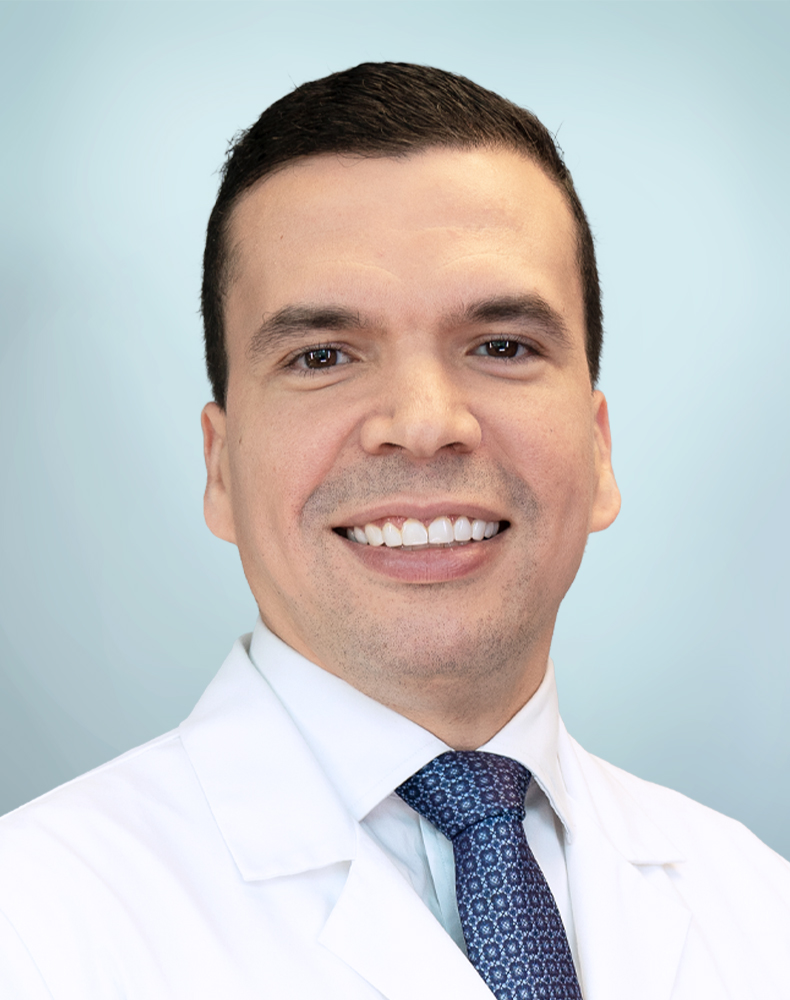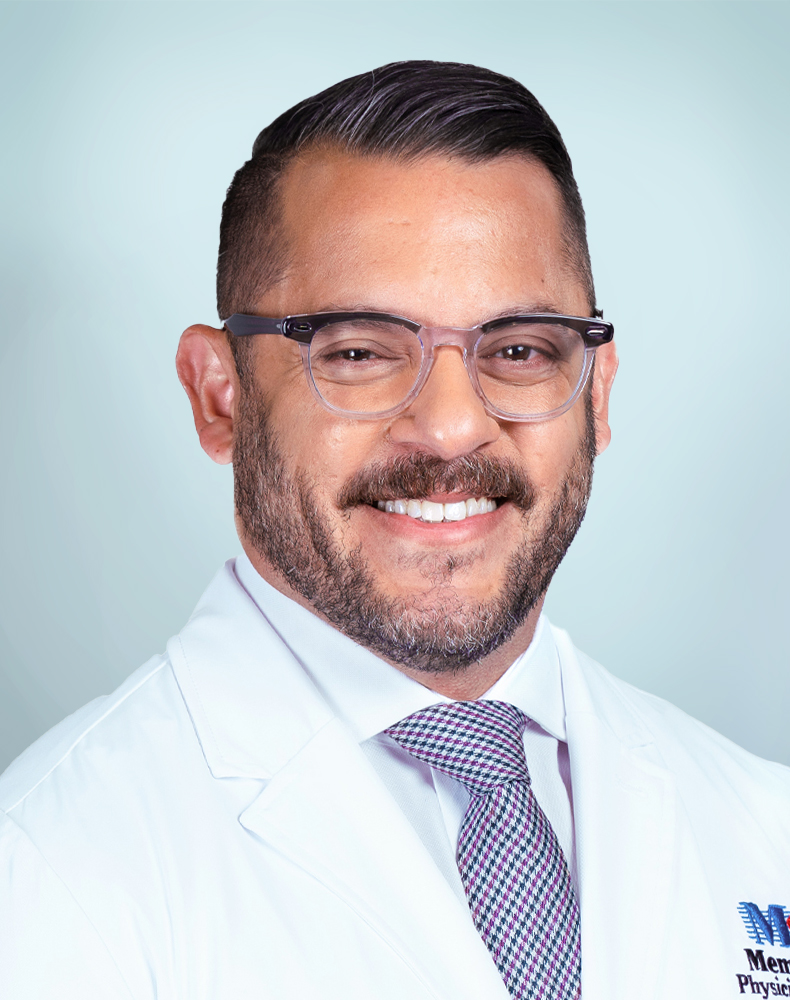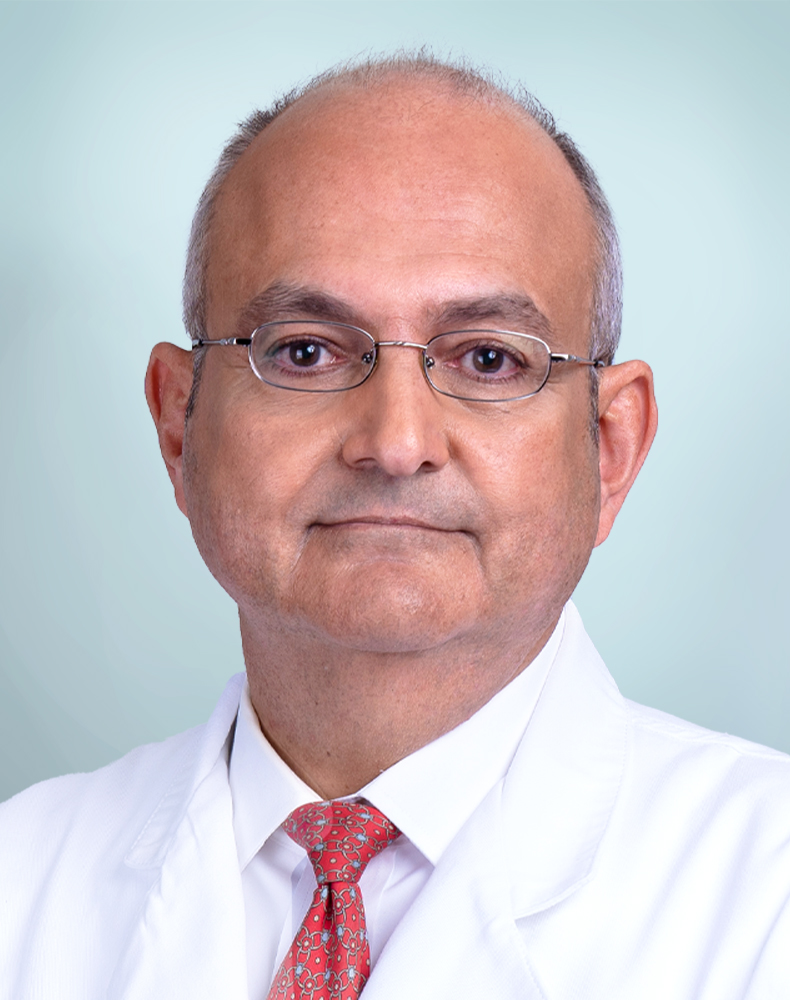Liver Cancer (Hepatocellular Carcinoma)
We offer treatments that are gentler on your body and more options for rare and advanced cancers.
Primary liver cancer (hepatocellular carcinoma) starts in your liver. Additional types include bile duct cancer (cholangiocarcinoma) and cancer from other body areas that spread to the liver (metastatic liver cancer). No matter where the cancer is, you can count on Memorial Cancer Institute to treat it.
A liver cancer diagnosis can make you anxious about your future. With our team, you are in caring and capable hands. We have decades of experience and have treated a high volume of patients, including complex cases. Our reputation for exceptional outcomes gives you the best chances for healing.
Connect with our patient access center. We can help you find the care you need.
954-265-4325Diagnosing Liver Cancer
Risk factors for liver cancer include long-lasting infections (hepatitis) and scarring (cirrhosis) from heavy drinking or fatty liver disease. If you are at risk or experiencing symptoms, we run blood tests to check liver function. We also check alpha-fetoprotein (AFP) levels, a blood protein that is associated with this cancer.
If we suspect there could be cancer, we run additional tests to learn more. Tests often include imaging studies such as MRI or CT scans to check for a mass.
We have uncommon cancer genetics and mutations expertise in South Florida. When there’s a liver cancer diagnosis, we check for gene mutations that respond to specific medical therapies.
Liver Cancer Treatments and Support
Surgery is the primary treatment for hepatocellular carcinoma. Some patients may be eligible for microwave ablation, which destroys liver cancer tumors with heat energy. This treatment is for primary liver cancer, bile duct cancer and metastatic liver cancer.
For rare or advanced cancers, you may need other therapies in addition to or instead of surgery. Our expert team considers all of your options and recommends the treatments that might deliver the greatest benefit.
We offer all the options you may need, including medical oncology treatments, such as targeted therapies that halt mutations fueling cancer cell growth. Immunotherapy is a medical treatment that boosts your immune system’s ability to recognize and destroy cancer. You may also be eligible for new treatments through clinical trials.
Radiation oncology uses special technologies to deliver radiation to liver cancer. Offerings include targeted radiation injections (hepatic arterial radioembolization with yttirum-90) to the blood vessels feeding the tumor. It is used for primary liver cancer, bile duct cancer and metastatic liver cancer. Our program maintains prestigious American College of Radiology (ACR®) accreditation for our commitment to safety and quality.
Supportive Therapies and Services for Hepatocellular Carcinoma
We offer a range of cancer support services to ease some of the worry and discomfort you may be experiencing. You may benefit from nutrition counseling, help from social workers and spiritual care. Specially trained nurses (patient navigators) are by your side throughout treatment, helping you access the support you need.
Liver Cancer Care: Why Choose Memorial Cancer Institute?
You receive care from a team of experts specializing in hepatocellular carcinoma. Many doctors completed advanced training through fellowships. All of them stay current on the latest liver cancer research.
Highlights of our program include:
- Team approach: Medical oncologists, surgeons, radiation oncologists, interventional radiologists and pathologists determine which treatments and in what order might provide the best results. And if your needs happen to change, we adjust therapies to keep your care moving forward. Meet our team.
- Minimally invasive surgery: Robotic technologies offer the highest surgical precision, enabling us to safely navigate delicate liver tissue. Laparoscopic techniques use small incisions and sophisticated instruments to remove cancer. Our experience from regularly using these techniques helps more patients achieve outstanding results.
- Radioembolization: You have access to treatments you might not expect to find in a community setting, like Y-90 radioembolization. Interventional radiologists implant tiny beads with a radioactive substance (yttrium-90) into the tumor, cutting off the cancer’s blood supply. This option is for people who are not eligible for surgery. It may be used to treat primary liver cancer, cholangiocarcinoma and metastatic liver cancer.
- Care for rare tumors: Neuroendocrine tumors (NETs) start in the endocrine (hormone-producing) system, pancreas or gastrointestinal tract and can spread to the liver. NETs are difficult to treat, but we offer advanced options, such as Lutathera®. It’s a drug specifically designed for neuroendocrine tumors affecting digestive tract organs, such as the liver.
- Holistic therapies: Your personalized care plan treats the disease while prioritizing your well-being. Care may include integrative medicine to relieve discomfort and promote healing. Offerings include acupuncture, massage and mindfulness services from highly skilled providers.
Connect with our patient access center. We can help you find the care you need.
954-265-4325
Patient- and Family-Centered Care
We treat patients and family members as partners in healthcare.


















